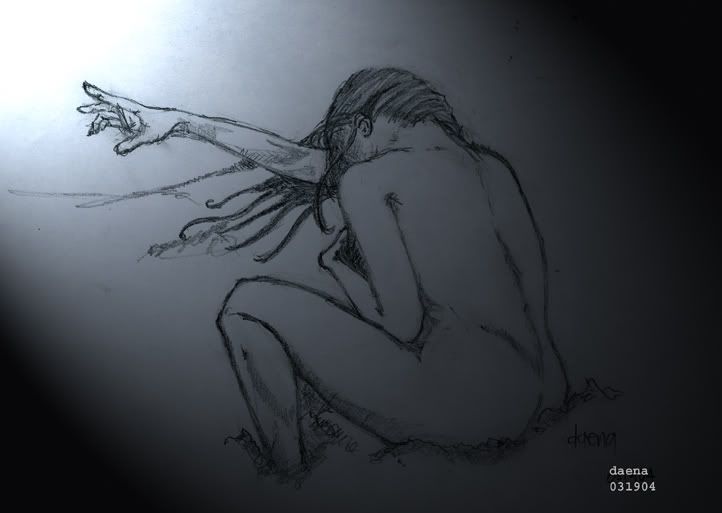HEROES
Every weekday morning, promptly at
As we drink coffee together in the sunshine outside the front door, I ask him whether he ever gets tired of the daily trip. Jacob has a trick of looking at you over the top of his glasses, which are Coke-bottle thick and held together with a bit of tape on the side. He squints at me and shrugs. “Of course,” he says. “But what else can I do?”
He’s a tall man, a little thick round the middle now, with tufts of white hair surrounding his bald patch. With his corduroy pants and patched-elbow jackets, he exudes the slightly rumpled air of an absent-minded professor. We chat easily as we finish our coffee, the conversation flowing from Barrack Obama’s victory at the polls, to the weather, which is surprisingly good today, and to his sleep last night, which wasn’t quite so good. Then we walk back down the hall to Room Five. Jacob knows his way around
I shake hands with Jacob and tell him goodbye, then I peek inside the room next door, Room Four. This is Carole's room. Fifteen months ago, Carole was a high-flying advertising executive, a mature single woman with two dogs, loads of friends and a love of travel. But when a routine insurance physical produced an unexpected diagnosis of rapidly-advancing cancer, chemo and radiotherapy left her with no eyebrows, a head of patchy, graying hair and severe depression. Right now, I’m looking for Maya, who was Carole’s next-door neighbor until three months ago when Carole was moved to
“What happened to all Carole’s other friends?” I ask. Throughout my week at
Maya looks at her hands and spins her rings. “Her friends visited a lot in the beginning,” she says. “When Carole was having surgery and during the chemo, people brought meals and gifts and stuff. But then …” she shrugs. “Carole got very depressed, very angry. She wasn’t pleasant to be around, you know. I guess people don’t like that too much. And when she got admitted her, when it seemed the end was close, they kind of stopped coming.”
“But you didn’t,” I say. “You weren’t even friends, back then, you were just next-door neighbors. So how come you’re the one who’s here for her now? Why is that?”
She smiles and shakes her head. “I wish I had a good answer for you. All I know is she’s alone in the world and she’s dying. I don’t think its right for anyone to have to die alone.” She shrugs, a little embarrassed. “I like to think maybe she’d have done the same for me, if our positions were reversed.”
“Kind of heroic,” I tell her, but she denies it immediately. “If anyone is a hero” she says “it’s Jacob—you know the guy I mean, Ruby’s husband?” As if on cue, we hear Ruby calling out as she does so often during the day. Help me, help me, nurse, nurse, help me, help me … The staff do the best they can, but there’s no real treatment for her persistent and meaningless vocalizations. Maya shakes her head.
“It’s really sad,” she says, “especially when you know their history, that it has come down to this.”
I have to agree. Over the week, I've also spent a lot of time talking with Jacob and I know now that when he was a teenager, he and most of the people in his little village in
Lucky, I think. For most of us, luck is getting off work a few hours earlier, or finding a ring you thought you’d lost. For Jacob and Ruby, it was survival. They met after the war, at a hiking club. They’d married and when Ruby was in her forties, they’d had a child, a daughter who now lived far away. “You should have known Ruby when she was still well,” he often said to me. “She was never a great beauty, but what a fine woman! And what a fine mind she had. She taught physics at university, did you know that?”
It’s hard to imagine. Whenever he’s there, Ruby, with her dull skin and rough cut hair, reaches for him anxiously, demanding his attention. She has the concentration span of a two-year old and I’ve even seen some of the staff getting a bit annoyed with her. But Jacob is patient. Day after day, he comes in and reads to her, talks to her, takes her for short walks. He never leaves her without a quick kiss to her brow.
I see him now, pausing at the door of Carole’s room. He gestures with his newspaper toward Carole. “How is she today?” We all look at Carole, thin, drawn, and still snoring. “No change,” says Maya. Her smile is sad, her eyes full of compassion.
He nods and for a moment there is silence in the room. But it’s not an uncomfortable silence. There is a strange camaraderie here, a bond between strangers built on nothing less than decency and love and the willingness simply to be present and to care, day after day after day. They might deny it, I think, but heroic is the word, for both of them.
“I’m off then,” says Jacob. “Would anyone like the newspaper? I’m finished with it for today.”
“Thank you,” says Maya. “Carole likes me to read to her sometimes and there’s lot of good news today. It makes a nice change, doesn’t it?”
“It does, it does indeed.” Jacob adjust his glasses, tips his cap to us and then he’s gone.

No comments:
Post a Comment